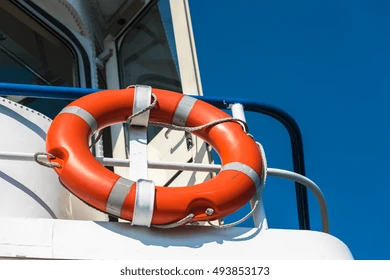Boat ownership brings a sense of freedom and adventure, but it also comes with responsibilities, one of which is ensuring adequate insurance coverage. Just like any other valuable asset, boats require protection from unforeseen events such as accidents, theft, or damage. When shopping for boat insurance, comparing quotes is a crucial step in finding the right coverage that fits both your needs and budget. Here’s a comprehensive guide on what to look for when comparing boat insurance quotes.
Understanding Boat Insurance Basics

Before diving into the specifics of comparing quotes, it’s essential to understand the basics of boat insurance. Boat insurance typically covers various scenarios such as:
- Physical Damage Coverage: This includes coverage for your boat itself against damage or destruction caused by accidents, fire, storms, or theft.
- Liability Coverage: Just like car insurance, liability coverage for boats protects you in case you’re legally responsible for injuries or property damage to others.
- Medical Payments: This covers medical expenses for you and your passengers in the event of an accident.
- Uninsured/Underinsured Boaters: Protection in case you’re involved in an accident with a boater who doesn’t have insurance or sufficient coverage.
- Personal Property Coverage: This covers personal belongings on your boat, such as fishing equipment, electronics, and other gear.
- Towing and Assistance: Coverage for towing and emergency assistance if your boat breaks down on the water.
Factors to Consider When Comparing Quotes
When you receive quotes from different insurance providers, several factors will influence both the coverage options and premiums. Here’s what to consider:
1. Coverage Types and Limits
Each insurance quote will outline the types of coverage offered and the limits of each coverage. It’s crucial to ensure that the policy covers your specific needs adequately. For example, if you frequently entertain guests on your boat, liability coverage should be sufficient to protect against potential lawsuits. Similarly, if you have expensive navigation equipment, ensure that personal property coverage includes these items.
2. Premium Costs
The premium cost is a significant consideration for most boat owners. Premiums can vary widely based on factors such as the value of the boat, its age, your boating experience, where you operate the boat, and your claims history. While it might be tempting to opt for the lowest premium, ensure that the coverage provided is comprehensive enough to protect your investment adequately.
3. Deductibles
The deductible is the amount you must pay out of pocket before your insurance coverage kicks in. Lower deductibles typically mean higher premiums and vice versa. Consider how much you can afford to pay in the event of a claim and choose a deductible that aligns with your financial situation.
4. Exclusions and Limitations
Exclusions are specific scenarios or items that are not covered by the insurance policy. For example, some policies might exclude coverage for racing or cover only certain types of watercraft. Review the policy’s exclusions and limitations carefully to understand what is not covered.
5. Claims Process and Customer Service
A smooth claims process and good customer service are invaluable when you need to file a claim. Research the insurer’s reputation for handling claims promptly and fairly. Read reviews and testimonials from other boat owners to gauge their satisfaction with the insurer’s customer service.
6. Additional Benefits and Discounts
Some insurers offer additional benefits such as emergency towing services, coverage for fishing equipment, or discounts for completing boating safety courses. These can add significant value to your policy and should be considered when comparing quotes.
7. Financial Stability and Reputation
Choose an insurer with a strong financial stability rating and a good reputation within the boating community. You want to be confident that the insurer will be able to fulfill its obligations in case of a claim.
8. Policy Flexibility and Customization
Look for insurers that offer flexibility in customizing your policy to fit your unique needs. A one-size-fits-all approach may not provide the coverage you require for your specific boating activities and equipment.
Tips for Comparing Boat Insurance Quotes
Now that you understand the factors to consider, here are some practical tips for comparing boat insurance quotes effectively:
- Request Multiple Quotes: Don’t settle for the first quote you receive. Request quotes from at least three different insurers to compare coverage options and premiums.
- Use a Comparison Tool: Online comparison tools can streamline the process of gathering and comparing quotes from multiple insurers. These tools often provide side-by-side comparisons of coverage options and premiums.
- Read the Fine Print: Don’t skip the policy documents. Carefully read through the terms, conditions, exclusions, and limitations of each policy to fully understand what is covered and what is not.
- Ask Questions: If there are terms or conditions you don’t understand, don’t hesitate to ask the insurer or your insurance agent for clarification. It’s essential to be fully informed before making a decision.
- Consider Bundling: If you already have other insurance policies (such as auto or home insurance), check if bundling your boat insurance with the same insurer can result in discounts.
- Review Annually: As your boating needs and circumstances may change, it’s a good practice to review your boat insurance policy annually to ensure it still meets your requirements.
Conclusion
Choosing the right boat insurance involves more than just comparing premiums. It requires a thorough understanding of the coverage options, deductibles, exclusions, and the insurer’s reputation for customer service and claims handling. By carefully comparing boat insurance quotes and considering all the factors discussed, you can make an informed decision that protects your investment and provides peace of mind while enjoying your time on the water. Remember, the best insurance policy is one that fits your unique boating lifestyle and needs.
